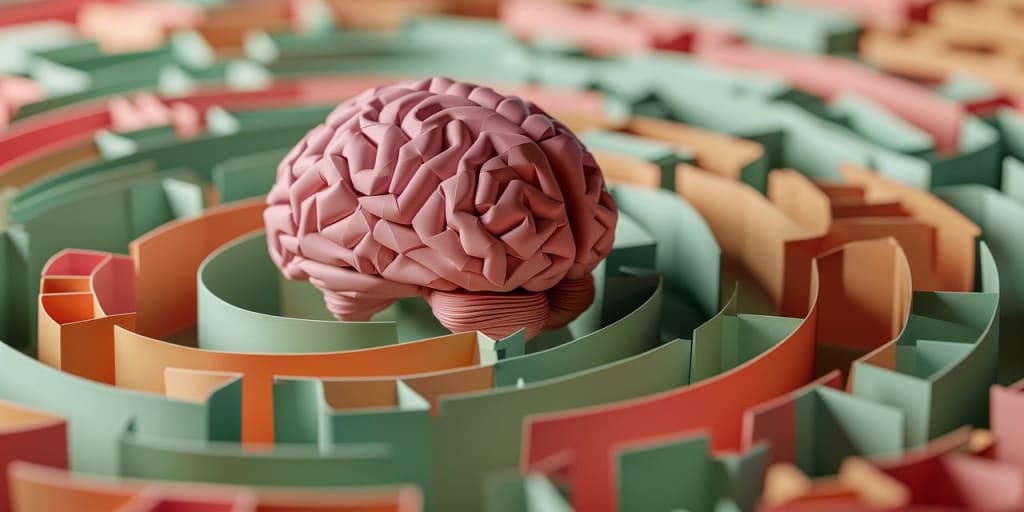The Powerful Connection: How Physical Fitness Boosts Mental Health in Young People
Physical Fitness Linked to Better Mental Health in Young People

The Powerful Connection: How Physical Fitness Boosts Mental Health in Young People
In the whirlwind of today’s fast-paced world, the well-being of young people often hinges on a delicate balance between mental health and physical fitness. The intertwining relationship between these two aspects of health is undeniable, yet it’s a connection that many overlook. As we delve into this topic, we'll explore how physical fitness is not just about building muscles or endurance, but it’s intrinsically linked to better mental health in young people.
Introduction: The link between physical fitness and mental health in young people
The conversation around health, particularly for young individuals, is evolving. It's becoming increasingly clear that physical fitness and mental health are not separate entities but rather deeply interconnected. This realization marks a pivotal shift in how we approach well-being, emphasizing the need for a holistic strategy that nurtures both the body and the mind. Physical activity, in its myriad forms, has emerged as a powerful tool, not only for its well-documented physical benefits but for its profound impact on mental health. This connection, rooted in both scientific research and personal testimonies, forms the cornerstone of our exploration.
The benefits of regular physical exercise for mental well-being
Diving into the heart of the matter, regular physical exercise stands as a beacon of hope for improving mental well-being among the youth. Its benefits are multifaceted, extending far beyond the physical realm. Engaging in consistent physical activity has been shown to elevate mood, enhance energy levels, and provide a sense of accomplishment. Each step taken, each mile run, and each weight lifted contributes not just to physical strength but to a fortified mental state. This connection is not just anecdotal; it is backed by a growing body of research that highlights exercise as a key component of mental health care.
The impact of physical fitness on mood and stress levels
One of the most immediate effects of physical activity is its impact on mood and stress levels. The act of moving our bodies triggers a cascade of biochemical reactions, including the release of endorphins, often referred to as the body’s natural mood elevators. These chemicals play a crucial role in mitigating stress and fostering a sense of well-being. For young people navigating the challenges of adolescence and early adulthood, this natural stress relief is invaluable. By integrating physical fitness into their daily routines, they can harness this biological response to enhance their mood and cope more effectively with the pressures of life.
How physical activity can reduce symptoms of anxiety and depression
Beyond the general uplift in mood, physical activity has been identified as a potent ally in the fight against anxiety and depression. These conditions, prevalent among young populations, can be debilitating, casting a long shadow over one’s quality of life. However, the disciplined pursuit of physical fitness can light a path through this darkness. Regular exercise has been linked to reductions in anxiety and depressive symptoms, offering a complementary approach to traditional therapies. It empowers young individuals with a proactive tool to manage their mental health, fostering resilience against these common mental health challenges.
The role of exercise in improving self-esteem and body image
In the journey towards mental health, the role of exercise in enhancing self-esteem and body image cannot be overstated. The physical changes wrought by consistent exercise—increased strength, improved endurance, and perhaps changes in body composition—can significantly boost one’s self-image. However, the benefits are not merely skin deep. The discipline required to maintain a fitness regimen and the personal milestones achieved along the way contribute to a stronger sense of self-worth. For young people, who often grapple with self-esteem issues, this aspect of physical fitness can be a key factor in building a positive self-image and a healthier relationship with their bodies.
The connection between physical fitness and cognitive function
Another fascinating dimension of this connection is the impact of physical fitness on cognitive function. The brain, like any other organ, benefits from a healthy blood flow, and exercise is a proven way to ensure that. Studies have shown that regular physical activity can enhance cognitive processes such as memory, concentration, and creativity. For young individuals, this can translate into better academic performance, heightened problem-solving skills, and an overall sharper mind. By prioritizing physical fitness, they are not only investing in their physical health but also in their intellectual and emotional development.
Strategies to incorporate physical activity into daily routines
Recognizing the myriad benefits of physical fitness, the question then becomes how to weave this essential thread into the fabric of daily life. For young people juggling academics, social commitments, and perhaps even part-time work, finding time for exercise can be daunting. However, the key lies in integrating activity into existing routines rather than viewing it as an additional task. Simple strategies, such as biking to school, taking short exercise breaks during study sessions, or engaging in team sports, can make a significant difference. The goal is to make physical activity a natural and enjoyable part of their daily lives.
Promoting physical fitness in schools and communities
The promotion of physical fitness, however, extends beyond individual efforts. Schools and communities play a crucial role in fostering environments that encourage physical activity. By offering a range of sports and fitness programs, providing access to safe exercise facilities, and creating a culture that values health, these institutions can significantly impact young people’s well-being. Initiatives that integrate physical fitness into the educational curriculum, for example, not only enhance students’ health but also improve their academic engagement and success.
Resources and programs for young people to improve physical fitness and mental health
Fortunately, there are numerous resources and programs designed to support young individuals in their pursuit of physical fitness and mental health. From community sports leagues to online fitness challenges, the options are diverse and accessible. Many organizations also offer workshops and seminars on the mental health benefits of exercise, providing both motivation and practical advice. By taking advantage of these resources, young people can find the support they need to embark on a journey towards improved physical and mental well-being.
Conclusion: The importance of prioritizing physical fitness for overall well-being in young people
In conclusion, the connection between physical fitness and mental health in young people is both powerful and profound. As we have explored, this relationship encompasses a wide range of benefits, from enhanced mood and reduced anxiety to improved self-esteem and cognitive function. The challenge now is to recognize and act upon this knowledge, to integrate physical activity into the daily lives of young individuals, and to promote a culture that values and supports their overall well-being. By prioritizing physical fitness, we are not just nurturing healthier bodies but fostering healthier minds and brighter futures.





Comments (2)
Good to learn! 🎈🪭
Wow amazing and thank you.